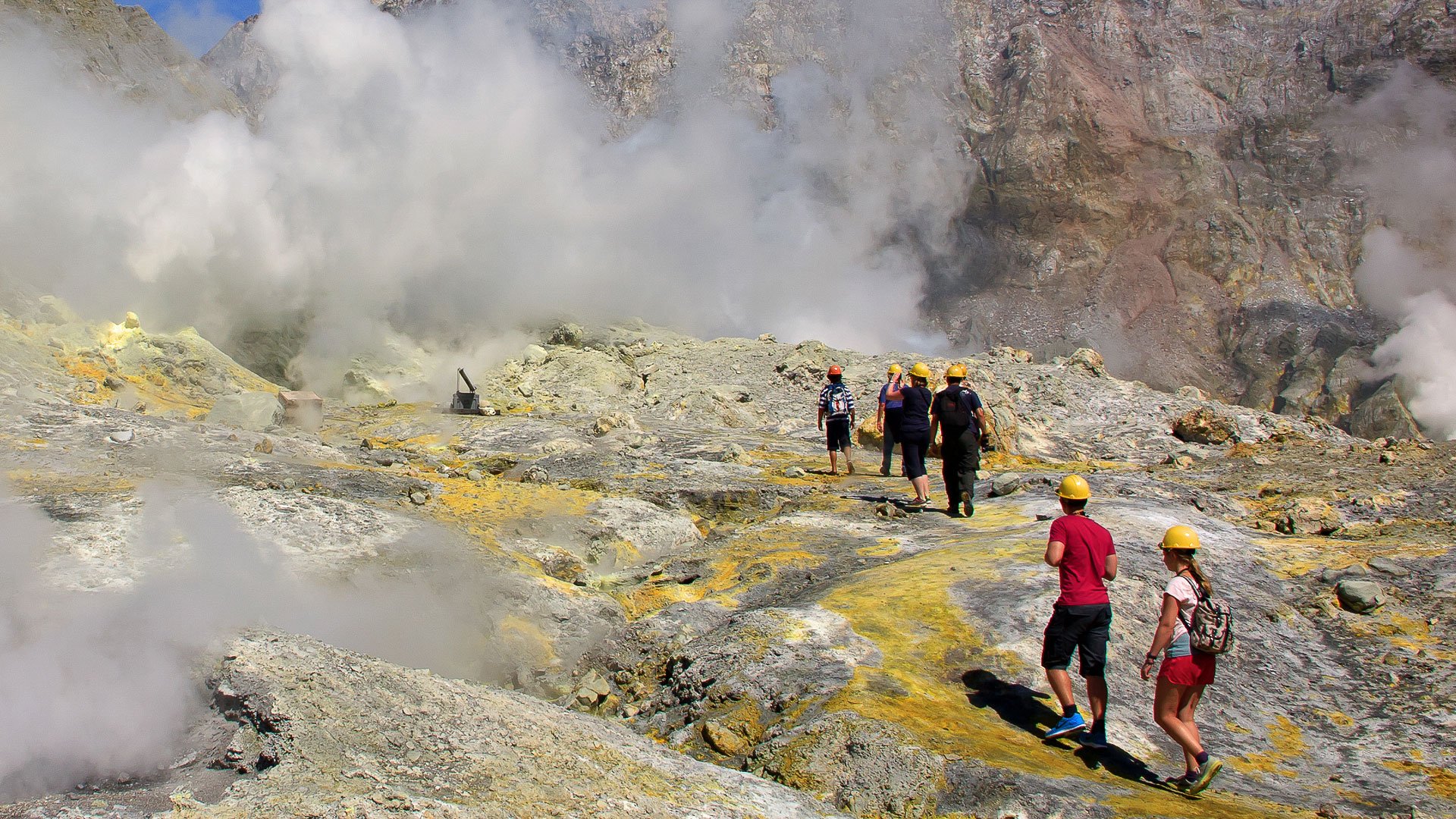
Although prosecutions in New Zealand are ongoing over the Whakaari White Island disaster, so far Judge Evangelos Thomas has ruled on seven guilty parties, resulting in penalties adding up to about NZ$13 million.
The court cases around the event, which caused 22 deaths and numerous serious injuries, reach as far away as the United States.
Royal Caribbean Cruises Ltd (RCCL), the company that sold tours to most tourists who were on the island at the time of the eruption, is currently facing civil proceedings in Florida.
Health and safety obligations
That fact — that ticketing agencies are potentially in the liability line of fire — represents one of the most significant outcomes of this particular case, says David Neutze, senior litigation partner with Brookfields Lawyers and a presenter at ANZIIF’s upcoming New Zealand Liability Conference.
Businesses that sell tickets for specific tours and experiences, in addition to those that operate the tours or manage the land on which they take place, can now be held accountable for health and safety events related to the tours.
“Particularly in the adventure tourism industry, with new adventure activity regulations which have been put in place since the tragedy, there will be a lot of players in that market who didn’t think they had to consider the health and safety processes of their suppliers, and who probably do now,” says Neutze.
During the recent hearings in New Zealand under Judge Thomas, Neutze was lead counsel for defendant ID Tours New Zealand Ltd (ID Tours).
Despite the fact that the business was simply a ticketing agent and ground handler between RCCL and White Island Tours for tours to Whakaari, ID Tours was originally charged with “failing to consult, co-ordinate, and co-operate with others to ensure that necessary safety information reached RCCL passengers,” says Neutze.
That charge was dismissed, after significant legal cost to the company’s insurer, as Judge Thomas agreed that ID Tours’ work activity did not place any visitors or guides on Whakaari.
“They simply reconciled the bookings and put the passengers on the bus at Tauranga,” explains Neutze.
New legislation may alter the landscape
However, that wasn’t the end of it. Legislation has now been changed as a result of this case.
The package of changes includes four areas: introducing specific requirements for how adventure activity operators must assess and manage natural hazard risks; strengthening requirements for operators to communicate risks to activity participants; stronger operator registration and notification requirements; and reviewing and updating adventure activity safety guidance.
“People who organise and book activities, especially adventure activities, must now start thinking about whether their suppliers have good health and safety practices and a good, clean record,” says Neutze.
“They have to start asking questions which they didn’t previously think they had to. That’s a direct result of the change in the legislation. This case showed people could be caught up, even though they didn’t think they had duties.”
In adventure tourism, a sector in which New Zealand punches well above its weight, there is now significant concern about new responsibilities and expectations, says Neutze.
These are issues that insurers and brokers must be aware of.
The Tourism Export Council of New Zealand was very concerned about the prosecution of ID Tours and now about the impact this new legislation is going to have on the tourism market, and whether its players are even equipped to take on the responsibility the new laws demand.
In terms of health and safety liability, it is likely that businesses will now be considered more broadly responsible for the processes, systems, practices and behaviours of others within their supply chains.
“It is putting obligations on people who really aren’t properly equipped to deal with them,” says Neutze.
“Fortunately, in the recent case, the judge ultimately agreed that the party that had the health and safety obligations was the operator who took people to the island. That was as far as it went under the law as it was at the time. But that may not be the position, now.”
Communicating the risks better
Looking through a liability lens, it is likely that all businesses in the adventure tourism arena are not only going to have to be more aware of the risks to their customers, staff and other stakeholders. They’re also going to need to communicate those risks more clearly.
“Many who survived the White Island event and gave evidence said if they knew the risks, they never would have gone on the tour,” says Neutze. “They felt they weren’t adequately advised of the risks.”
Most operators ask tourists to sign waivers. But waivers never provided thorough legal protection in the past, says Neutze. Now, they’ll likely be worth considerably less.
The new position on adventure activities is that all organisations in the supply chain need to be aware of all serious risks, and must clearly communicate those risks, even if they change daily.
All reasonably practicable steps must also be taken to inform participants of those risks at the pre-booking stage, immediately before participating in the activity, and during the activity.
WorkSafe due diligence
Another potential consequence of this case is that WorkSafe may look more closely at directors’ due diligence obligations under the health and safety legislation in future investigations.
It’s a difficult call for tourism businesses, still suffering from a COVID hangover.
“The people who should analyse the risk are the operators and perhaps the regulators,” says Neutze.
“If a ticketing agency sells hundreds of different tours for hundreds of suppliers, and they earn around $12 per ticket for doing so, as was the case with ID Tours, are these new obligations ones that such a business could ever meet?”

Comments
Remove Comment
Are you sure you want to delete your comment?
This cannot be undone.